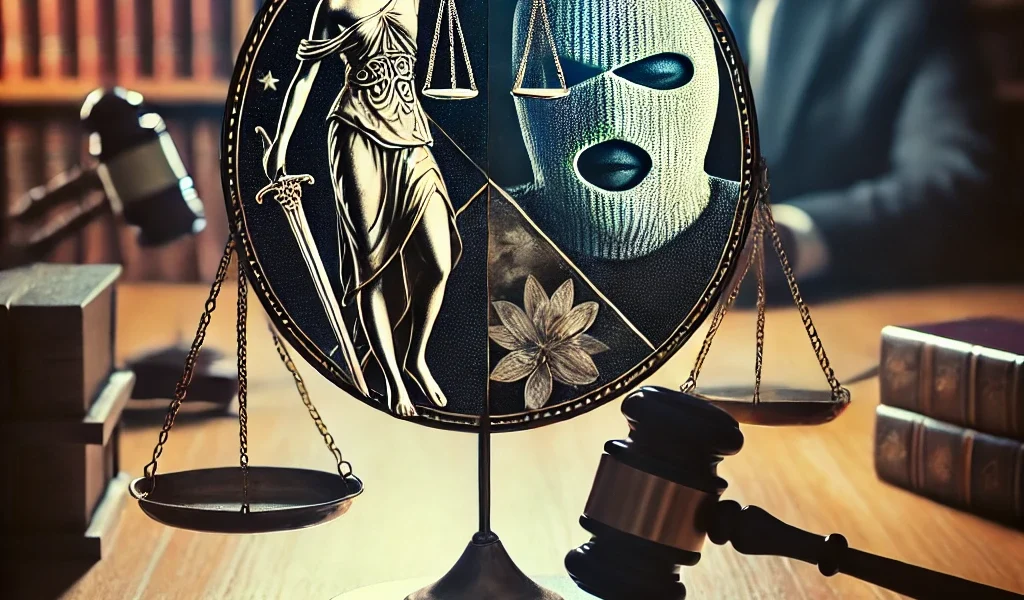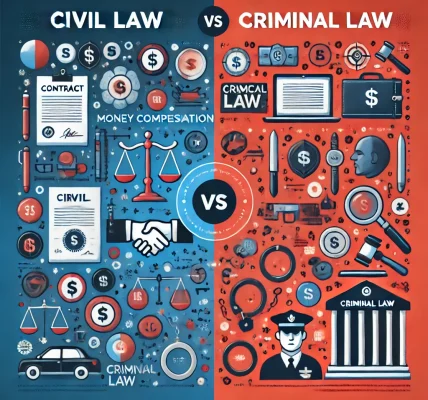Introduction
Criminal law serves as a fundamental pillar in any justice system, ensuring that those who commit crimes are held accountable while also safeguarding the rights and interests of victims. Victims of crime often experience emotional, physical, and financial hardships, making legal protections essential for their recovery and justice. This blog explores how criminal law protects victims’ rights, emphasizing legal provisions, victim support mechanisms, and the overall significance of a fair justice system.
Understanding Victims’ Rights in Criminal Law
Victims’ rights refer to the legal protections and entitlements provided to individuals who have suffered due to criminal offenses. These rights ensure fair treatment, access to justice, and the necessary support throughout legal proceedings. Many jurisdictions have specific laws and policies designed to uphold victims’ rights, including:
- Right to Be Informed – Victims have the right to receive timely updates about their case, including court proceedings, plea bargains, and sentencing decisions.
- Right to Protection – Laws safeguard victims from threats, intimidation, and retaliation, ensuring their safety throughout the legal process.
- Right to Participation – Victims can present their views and concerns during trials, sentencing, and parole hearings.
- Right to Compensation and Restitution – Criminal law often includes provisions requiring offenders to compensate victims for damages suffered.
- Right to Fair Treatment – Victims must be treated with dignity and respect, avoiding unnecessary trauma during investigations and court proceedings.
Legal Provisions for Victim Protection
1. Victim Compensation Programs
Many legal systems establish victim compensation funds, ensuring that those affected by crime receive financial support. These programs help victims cover medical expenses, lost wages, and therapy costs.
2. Witness Protection Programs
Victims and witnesses of serious crimes, such as human trafficking and organized crime, may be at risk of retaliation. Law enforcement agencies provide relocation assistance, security measures, and new identities to protect them from harm.
3. Restraining and Protection Orders
For victims of domestic violence, harassment, or stalking, courts issue restraining orders against offenders, preventing contact and potential harm. Violating these orders results in legal consequences.
4. Victim Impact Statements
During sentencing, victims can submit impact statements explaining how the crime affected their lives. These statements help judges determine appropriate punishments and rehabilitation measures for offenders.
5. Restorative Justice Programs
Some jurisdictions implement restorative justice practices, allowing victims to communicate with offenders in a controlled setting. This process promotes healing, accountability, and reconciliation while addressing victims’ needs.
The Role of Law Enforcement in Victim Protection
Law enforcement agencies play a crucial role in upholding victims’ rights. Officers receive training on handling victims with sensitivity, ensuring they feel heard and protected. Key responsibilities of law enforcement include:
- Responding promptly to crimes and securing the crime scene.
- Gathering evidence while minimizing further trauma to victims.
- Providing guidance on legal rights and available support services.
- Enforcing protective orders and ensuring victims’ safety.
Legal Reforms to Strengthen Victims’ Rights
To enhance victim protection, governments continually revise laws and introduce reforms. Some noteworthy initiatives include:
- Expanding Legal Aid Services – Ensuring that victims receive free legal representation and guidance.
- Strengthening Anti-Victim Blaming Policies – Educating law enforcement and judicial officers to prevent bias against victims.
- Enhancing Cybercrime Laws – Addressing the rising number of online fraud, harassment, and identity theft cases affecting victims.
- Fast-Track Court Procedures for Victim Cases – Reducing delays in justice by prioritizing cases involving vulnerable victims.
The Importance of Public Awareness and Advocacy
Public awareness plays a crucial role in ensuring victims know their rights and available resources. Legal institutions collaborate with non-governmental organizations (NGOs) to:
- Conduct awareness campaigns on victim rights.
- Offer counseling and psychological support services.
- Provide shelter and emergency assistance for at-risk victims.
Conclusion
Criminal law is essential in protecting victims’ rights by ensuring justice, compensation, and safety for those affected by crime. Legal frameworks, law enforcement, and support programs work collectively to uphold these rights, fostering a fair and just society. Continuous legal reforms and public awareness efforts will further strengthen victim protections, ensuring that individuals receive the justice and support they deserve.
By understanding and advocating for victims’ rights, society can contribute to a more compassionate and effective legal system, where justice serves not only to punish offenders but also to heal and restore those who suffer from crime.




